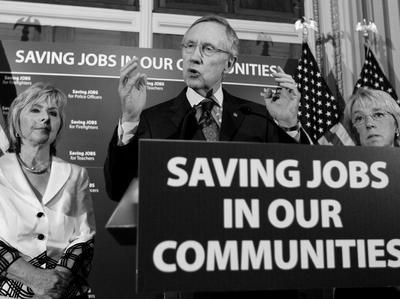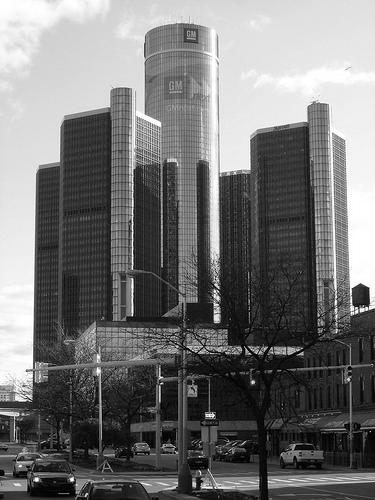Turnaround Powerhouse
ContactState Aid is Simply Wrong
Blog posted by Jan Adriaanse
Although state aid can be a profitable business for governments and although it seems to save companies and safeguard employment, it should be abolished from our capitalistic system. State aid is simply wrong.

Last week the United States Department of the Treasury announced that it is expected that the US government will eventually make a small profit as a result of the rescue operations it undertook via its Troubled Asset Relief Program (TARP) in recent years, which provided state aid to more than 700 banks as well as a couple of mortgage providers and Detroit car manufacturers like General Motors and Chrysler. Quite an accomplishment one might say, given the seriousness of the experienced economic situation - the worst recession since the Great Depression in the 1930s. And although ironically the biggest profit – or allow me to use the word ‘bonus’ – stems from the rescue operations in the banking sector, the billion dollar state aid provided to the Detroit 2 helped to save thousands of jobs. In fact the department has calculated that it helped to create about 230,000 new ones, The TARP companies were simply “too big to fail” and thanks to the profits, everyone was happy in the end. All’s well that ends well.
Or is it?
Talking about “too big to fail”, who actually decides when a company is too big to fail? What is the perfect size to be too big? And, vice versa, when is your company small enough to fail? Do we measure annual sales, the number of employees or maybe the biggest size of amounted losses in, let’s say, the past ten years? GM is then the winner, having made about 90 billion dollars in losses prior to the devastating year 2008…

What is the moral or economic justification for state aid? What is the trigger mechanism? What is the right moment or situation? There’s no answer, at least not to me. Of course, there are legal issues involved, but I am not looking at these. I want to talk about viability, or rather, assumed viability. Every rescue operation is actually an implicit moral or economic judgment about the perceived viability of a company; its right to exist. At least, this is what the government’s signal is to us. “We want to help potentially viable companies through these tough economic times both saving employment and economic value for the better times to come”. But are government officials really so entrepreneurial that they can make these kind of judgments? The Department of the Treasury as some kind of ‘Entrepreneurial Supreme Being’? I’m afraid not.
But is this really the problem? Well, no, because the real problem is that even when government is able to perform this kind of restructuring analysis or to really overlook the potential of a company turnaround program, the real question is: who are you to decide whether my company or rather my competitor will survive? Isn't the right to decide on the future of a failing company not exclusively delegated to the shareholders, financiers, (potential) investors, management, suppliers, employees and, in my opinion most importantly, the customers? Customers who decide, or have in fact already decided, to buy or not to buy the GM Chevrolet Impala or a Chrysler Voyager - green or gas guzzling. Customers whose buying behavior actually provides the explicit moral and economic judgment about the right of existence of the company. And I haven’t addressed the competitors yet - other manufacturers who, now powerless, have to observe the rescue of a failing and disturbing competitor who can often make a start with a clean slate, fueled by their well-earned profits and paid taxes…
Nobody is too big to fail. State aid is simply wrong. And though it now seems to be quite profitable, it should be abolished from our capitalistic system. No excuses. No exemptions.
This blog post was originally posted on the Leiden Law Blog